Iverheal 3mg Ivermectin Tablets
$35.00 – $75.00Price range: $35.00 through $75.00
Iverheal 3 is used to treat parasitic infections. It contains Ivermectin, which works by targeting and eliminating parasites in the body.
| Pack Size | Price | Price / Unit | Quantity | |
|---|---|---|---|---|
| 100 Tablets | $35.00 | $0.35/ unit | ||
| 200 Tablets | $60.00 | $0.30/ unit | ||
| 300 Tablets | $75.00 | $0.25/ unit |
Looking for bulk / B2B pricing? | Send Inquiry |

| SKU | 11027 |
| Manufacturer | Healing Pharma India Pvt Ltd |
| Categories | Antiparasitic |
| Delivery Time | 10 - 14 Working Days |
| Strength | 3mg |
Introduction to Iverheal 3mg Tablets
Iverheal 3mg Tablet is an anti-parasitic medication used primarily for the treatment of various parasitic infections. It contains Ivermectin as its active ingredient, which works by targeting and damaging the nervous system of parasites, leading to their paralysis and eventual death. This medication is commonly prescribed for conditions such as scabies, lice, and certain types of intestinal worm infestations, including strongyloidiasis and onchocerciasis.
Iverheal 3 contains Ivermectin which belongs to the group of medicines called anthelmintic. It is used to treat various parasitic infections such as onchocerciasis, intestinal strongyloidiasis, filarial worm infestations (e.g. lymphatic filariasis or microfilaraemia), hookworm infestations, scabies, pediculosis (head lice) and helminthiasis (such as Ascariasis (roundworms), Trichuriasis (whipworm) and Enterobiasis (Pinworm)).
Uses of Iverheal 3 mg
- Onchocerciasis
- Intestinal strongyloidiasis
- Filarial worm infestations (e.g. lymphatic filariasis or microfilaraemia)
- Hookworm infestations
- Scabies
- Pediculosis (head lice)
- Helminthiasis (Ascariasis, Trichuriasis and Enterobiasis)
How Does Iverheal 3 Works?
Iverheal 3 mg is an antiparasitic agent. It acts against the parasite by selectively binding to the glutamate-gated chloride ion channels present in the nerve and muscle cells of the organisms. Binding of ivermectin to glutamate-gated chloride ion channels increase the influx of chloride ion which results in hyperpolarization, leading to paralysis and death of the parasite.
Directions of Use Iverheal 3mg
Take Iverheal 3 mg as directed by your physician. It must be taken on an empty stomach either 2 hours before or after meals. Swallow the medicine as whole with a sip of water. In case of dispersible tablet, disperse the tablet in a teaspoonful of boiled and cooled water before administration. Your doctor will decide the correct dose and duration for you depending upon your age, body weight and severity of the infection. Continue to take this medicine, as long as your doctor tells you to do so, to obtain better results.
Side Effects of Iverheal 3mg
Common Side Effects
- Dizziness
- Nausea and Vomiting
- Fatigue
- Headache
- Diarrhea
- Skin Rash
Serious Side Effects
- Allergic Reactions
- Neurological Effects
- Skin Reactions
- Liver Problems
- Mazzotti Reaction
- Stick to simple meals. Do not eat rich or spicy food.
- Eat fibre rich foods like fresh fruit, vegetables and cereals. Drink plenty of water. Exercise more regularly.
- Drink lots of fluids, such as water or juice, to avoid dehydration. Do not take any medicines without speaking to a doctor.
- Try to rest and relax. You can eat and drink slowly or have smaller and frequent meals. Keeping a heat pad on your stomach may also help. If still pain persists, speak to your doctor.
- Rest and drink plenty of fluids. Do not drink too much alcohol. Ask your doctor to recommend a painkiller.
- Try to rest and relax. Get enough sleep. Avoid traveling, driving or operating any tools or machines while you are feeling dizzy. If the symptom still persists, contact your doctor for advice.
Warning & Precautions
1. Pregnancy
- Iverheal 3 mg is not recommended for use in pregnant women unless necessary. Discuss the risks and benefits with your doctor.
2. Breastfeeding
- Iverheal 3 mg is not recommended for use in breastfeeding women unless necessary. Discuss the risks and benefits with your doctor.
3. Driving And Using Machines
- Do not drive or operate any machines if your ability is affected by this medicine.
4. Liver
- Iverheal 3 mg should be used with caution in patients having liver disease. Consult your doctor before taking.
5. Allergy
- Do not take this medicine if you are allergic to ivermectin.
Interactions
Talk to your doctor, if you are taking:
- Diethylcarbamazine citrate (DEC) (a medicine used to treat a co-infection with Onchocerca volvulus)
- Warfarin (used for blood thinning)
FAQs – Frequently Asked Questions
1. Can Iverheal 3 be used in children?
Yes. It can be used in children to treat various parasitic infection, except onchocerciasis and scabies in children (aged below 5 years) and intestinal strongyloidiasis in children (below 12 years). Also, it is not recommended for use in infants weighing less than 15kg due to lack of safety data. Consult your doctor before taking.
2. What are the safety measures to be taken while taking Iverheal 3?
People who come in contact with you (e.g. friends, family members and relatives) should also visit the doctor as soon as possible as a safety precaution. To avoid the spread of infection (e.g. scabies), frequently wash your clothing and bedding in hot water and keep all your non-washable items in a tightly sealed plastic bag for at least 3 days. Trim your nails frequently.
3. What should I do if I miss a dose?
If you miss a dose of Iverheal 3, take it as soon as you remember. However, if it is almost time for your next dose, skip the missed dose and continue with your regular dosing schedule. Do not take a double dose to make up for a missed one.
4. Is Iverheal 3 safe?
When used as directed and under the supervision of a healthcare professional, Iverheal 3 is generally considered safe. However, it may not be suitable for everyone, and certain precautions need to be taken, especially in individuals with certain medical conditions or who are taking certain medications. Always consult a healthcare provider before using Iverheal 3mg.
| Pack Size | 100 Tablets, 200 Tablets, 300 Tablets |
|---|---|
| Price/Unit | $0.25/unit, $0.30/unit, $0.35/unit |
3 reviews for Iverheal 3mg Ivermectin Tablets
Add a review Cancel reply
Related Products
Antiparasitic

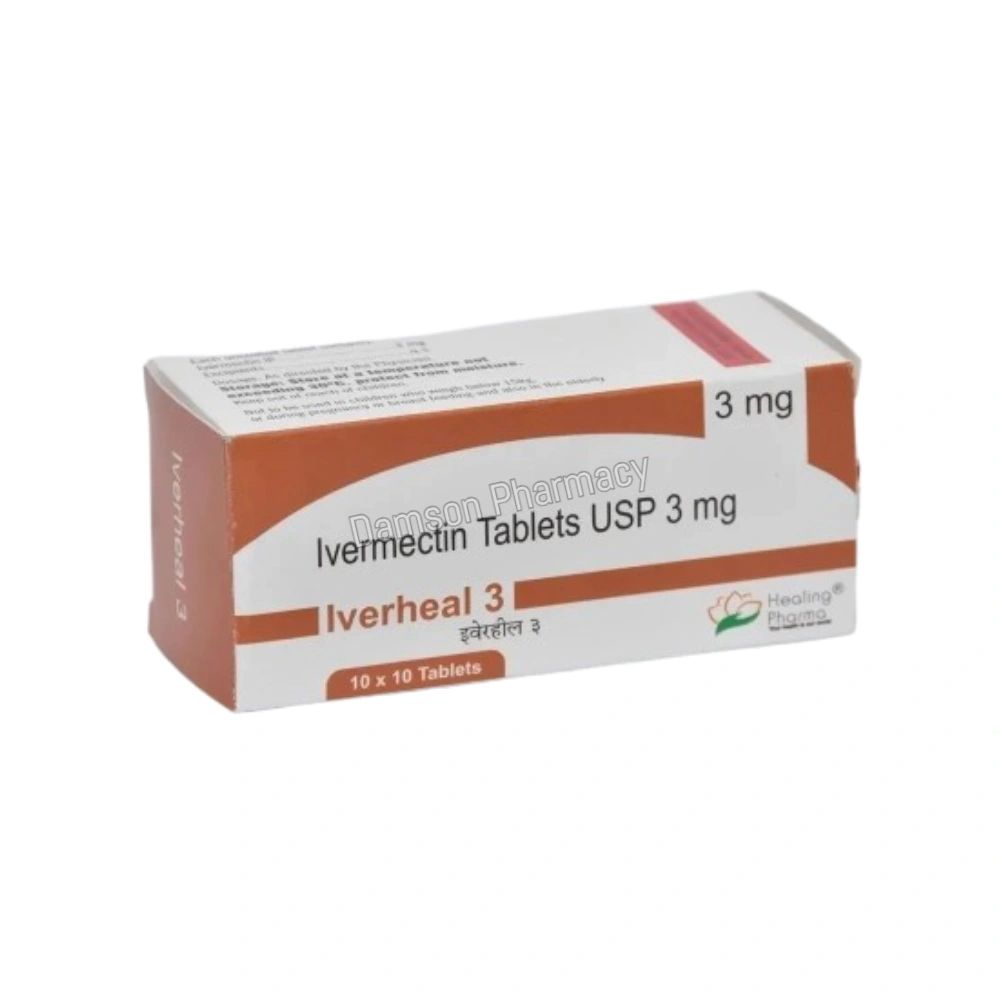


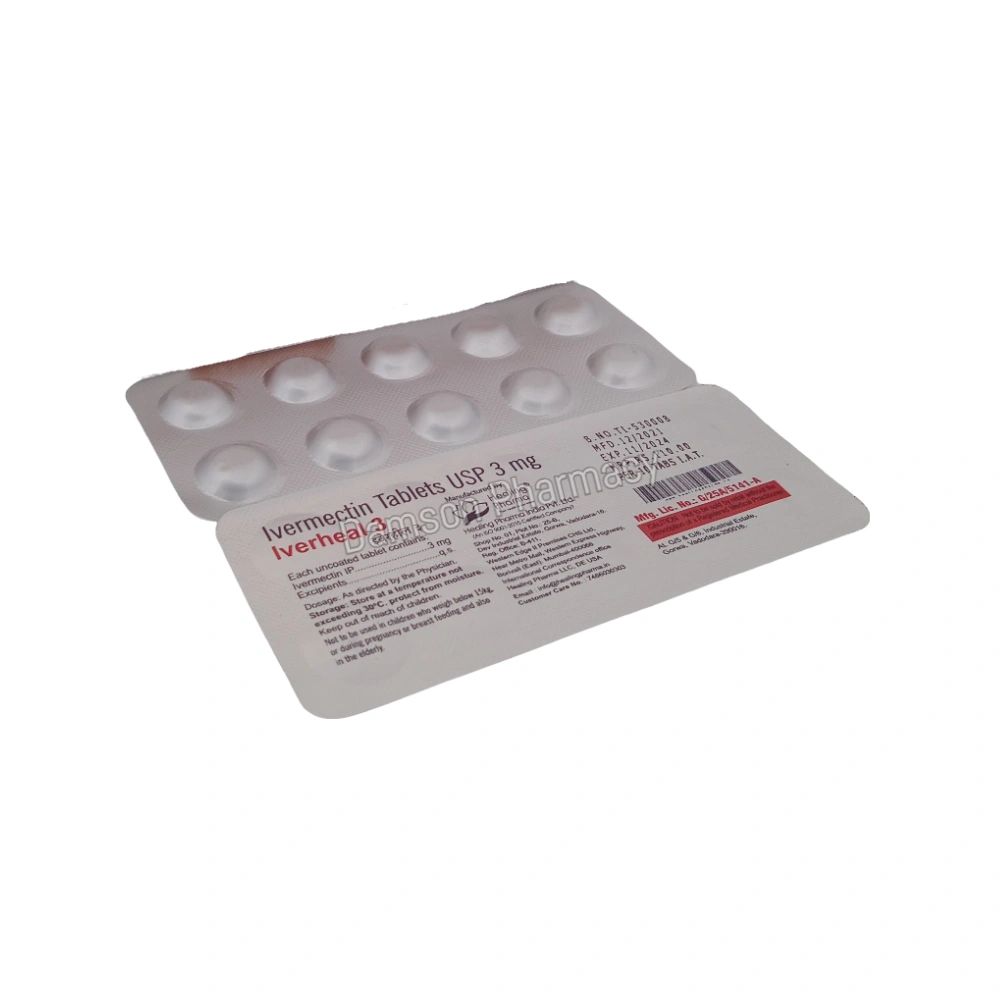
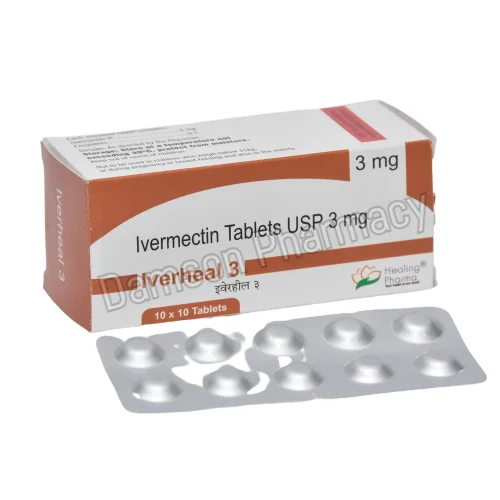
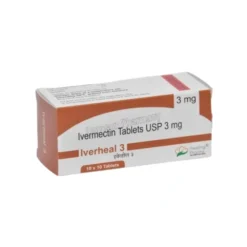
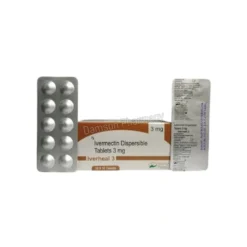
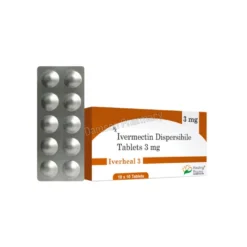
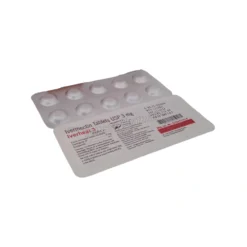

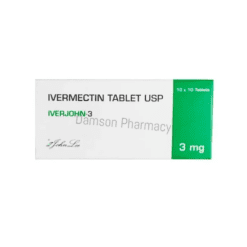
Viking –
Great service, nice folks, easy….a bit of wait to get to the states but mostly the fault of the product and where it’s coming from, not Damson Pharmacy.
Emily –
Iverheal 3 helped clear my scabies infestation quickly with just a single dose, and I experienced no side effects.
Charlotte Murphy –
Iverheal 3 mg worked well for me, and the service made things stress-free. Will definitely order again here.